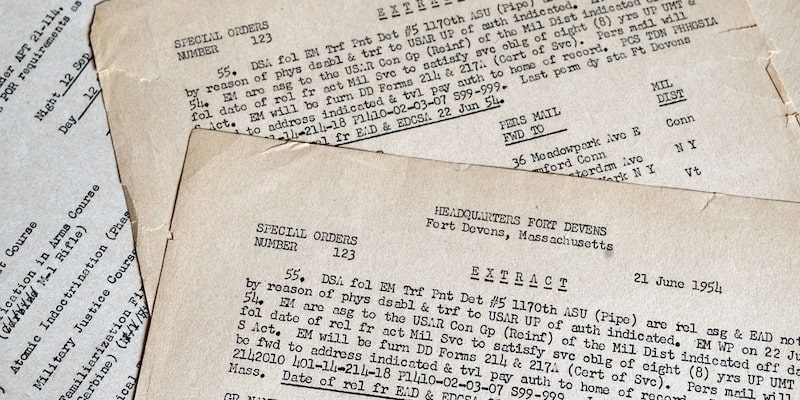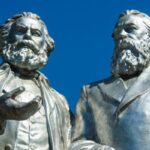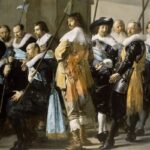We explain what historiography is, what its object of study is and its currents. Also, how is it different from history.

What is historiography?
The historiography It is the art of writing or researching the history through critical analysis of historical sources that is, it is the scientific study of history. This is a very important discipline when reflecting on the past. On the other hand, what can be considered a “meta-history” is also called historiography, that is, the study of the ways in which historical narration and research has been produced over the years.
Although the first historical accounts emerged in ancient times, Historiography as a specialized discipline was born at the end of the 18th century and the beginning of the 19th century when the academic need to think about history from a scientific perspective was assumed. This allowed reflection on the different sources and historical materials, their modes of interpretation and the way in which they were integrated into a more or less official story.
Historiography contributes to the central role that history occupies in contemporary culture, since It is the science in charge of interpreting the past and propose certain meanings about the existence and future of humanity or nations.
For centuries, the collective memory of human societies was transmitted orally, long before writing was invented. The survival of oral stories depended on their constant repetition, and in the process the boundaries between the narration of past events and the incorporation of mythological or literary aspects were easily confused.
This idea of history changed radically with the appearance of writing, since documents began to exist that could be read critically by later generations. This was accentuated with the appearance of new technologies and scientific knowledge hand in hand with modernity, which not only expanded the type of historical evidence (such as photography, video, chemical study, among others), but also allowed the formulation of a more objective look at history.
Key points
- Historiography is the critical study of historical sources to understand the past and the analysis of the ways in which history was written and studied.
- It is based on the analysis of sources, the use of research methods and the construction of historical narratives or explanations.
- It was established as a specialized discipline at the end of the 18th century and the beginning of the 19th century.
- Over time, various historiographic currents emerged with different approaches, such as historicism, positivism, historical materialism, and social and cultural history.
See also: Factual sciences
Object of study of historiography
There is an academic debate regarding what specifically is the object of study of historiography. The most common perspective states that historiography is a set of scientific techniques and methods that deal with the analysis of historical sources (written documents, archaeological remains, among others), with the aim of reconstructing, narrating, explaining or understanding a event or period from the past. In this sense, The object of study of historiography is history, that is, the past or certain aspects of the past.
In the perspectives that define historiography as a kind of “meta-history”, the object of study is not history or the past itself but the texts written about history and the historical perspectives that were imposed over the years. Thus, for example, historiography deals with books written about a specific historical period, with its way of analyzing original documents and other historical sources, or with the different historiographic currents or schools dedicated to the interpretation of history.
Currents of historiography
Historiography did not always understand history in the same way, and Over time, different currents or perspectives emerged generally linked to some academic group, philosophical trend or broader ideology. Each historiographic current proposed a different way of understanding history.
Some of the main historiographic currents are:
- historicism. This trend was typical of the 19th century and the founding of historiography as a discipline, especially by the German historian Leopold von Ranke (1795-1886) and his followers. Its purpose was to achieve historical objectivity. His way of understanding history was close to idealism, since he stated that change in ideas was what made human history, and that reality could only be understood through the study of historical change in people and institutions. especially in the State.
- positivism. This movement had its rise in France in the 19th century, influenced by the theories of the philosopher Auguste Comte (1798-1857) and developed by historians such as Hippolyte Taine (1828-1893). He understood the role of the historian as that of a natural observer: objective, neutral, without interference from the present. For positivism, history was a set of progressive stages that humanity was overcoming in its march towards progress. It was proposed that these stages were universal and logically verifiable based on the examination of the sources, and therefore their study should be more analytical than narrative.
- historical materialism. This historiographic current is part of the philosophical heritage of Marxism, since it is inspired by the vision of history proposed by Karl Marx (1818-1883) and Friedrich Engels (1820-1895). His vision of history does not focus on a set of ideas or thoughts, but on the social and economic relationships linked to the systems and modes of production of a society. Thus, according to historical materialism, what drives historical change is the struggle between social classes for control of production.
- The Annales School. This trend emerged in the 20th century, and its name is due to the French magazine Annales d'histoire économique et sociale (“Annals of economic and social history”) founded in 1929 by Lucien Febvre (1878-1956) and Marc Bloch (1886-1944). A school of historiographical thought emerged around this magazine that was dedicated to social history and defended the need to understand history based on knowledge from other disciplines, such as sociology. Furthermore, it privileged a long-term historical perspective (longue durée) over the study of concrete events.
- The “New History”. This current emerged in the second half of the 20th century, led by the third generation of historians of the Annales School. Its name was popularized by the French historians Pierre Nora (1931-) and Jacques Le Goff (1924-2014), and it proposes the historical study of the collective representations and mental structures of societies (that is, the history of mentalities). Based on this, the role of the historian is to propose rational interpretations of the data extracted from historical material. It is also related to the so-called cultural history or history of culture.
Importance of sources for historiography

Historical sources are those documents, objects and testimonies related to a specific historical fact, which can be studied to obtain direct information (primary sources, created by those who experienced the event) or indirect (secondary sources, created after the event) about the past. These sources can be official or personal documents, publications, plastic works, photographs, videos, archaeological remains, engravings and everyday objects.
Sources are the primary study material of historiography that is, they are your body of work and research, where information must be sought to interpret or analyze. Without available sources, it is impossible to approximate a period in history, since there is no way to know what happened or how it happened. Sometimes there are no direct testimonies of an event from the past, but mentions of it are preserved in other historical texts, and only in this way can the historian know and study it.
Differences between history and historiography
History and historiography are different concepts, although deeply related. In fact, history is the object of study of historiography, that is, historiography is dedicated to the study of history. History, for its part, is both the past and the long compilation of facts and events that have happened to humanity since ancient times.
This means that the historian is in charge of recounting what happened or constructing a more or less coherent and credible account of the events of the past through a critical method of analysis of sources. However, in the meaning of historiography as a “meta-history”, the historiographer is responsible for critically reviewing the different studies on the past and analyzing the way in which they should be understood philosophically and conceptually.
References
- Dosse, F. (2003). History: concepts and writings. New Vision.
- García-Bullé, S. (2021). History and historiography, what is the difference? Monterrey Institute of Technology Observatory. https://observatorio.tec.mx/
- Iggers, G. G. (2012). The historiography of the 20th century. Economic Culture Fund.
- Vann, R. T. (2023). historiography. Encyclopedia Britannica. https://www.britannica.com/





